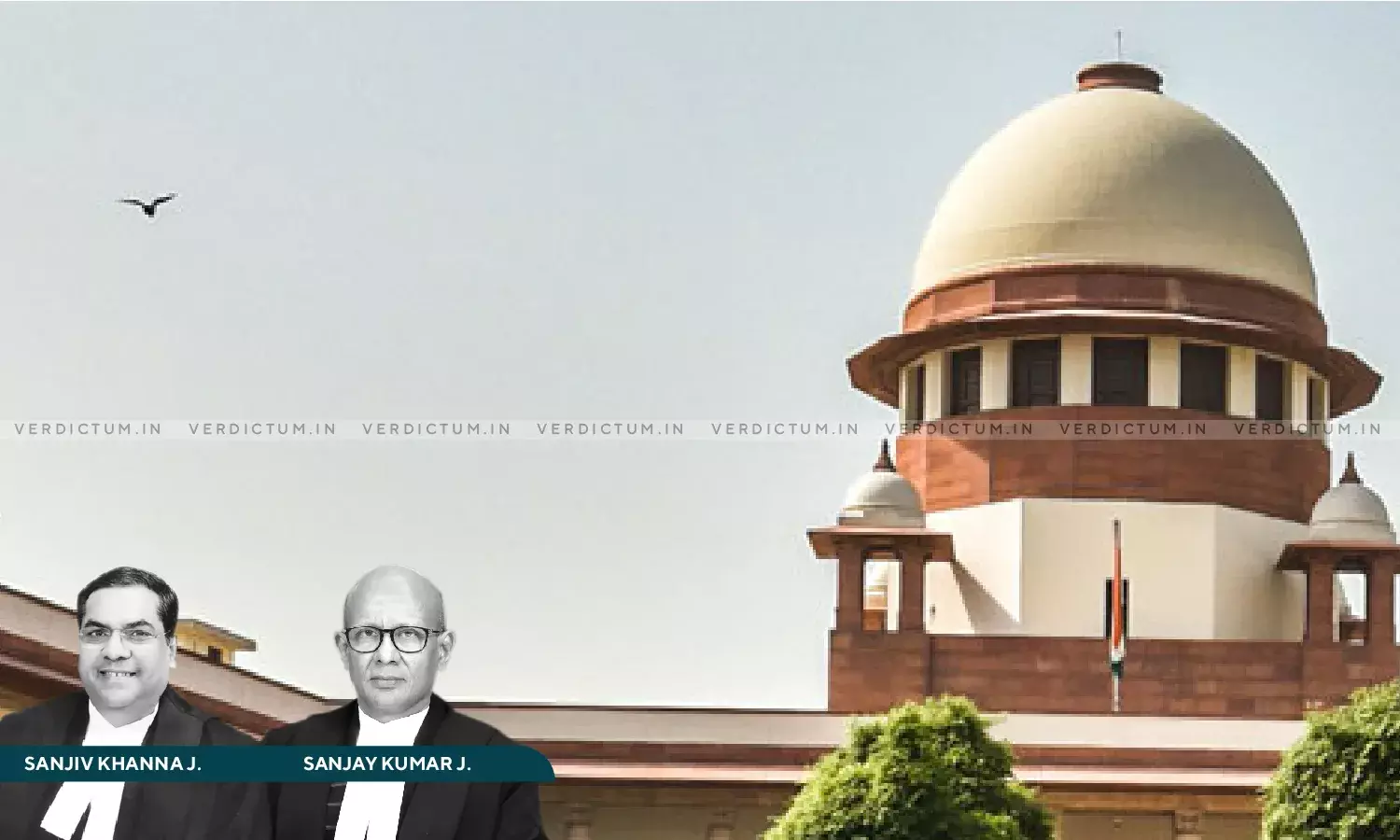Should Words 'Socialist' & 'Secular' Be Mentioned Separately In Preamble Of Constitution To Indicate Its Subsequent Addition: Supreme Court To Examine
The Supreme Court has agreed to examine, in a batch of petitions challenging the alteration of the Preamble through the 42nd Amendment to include the words 'secularism' and 'socialism', whether those words should be excluded from what is covered by the sentence "In our Constituent Assembly this twenty-sixth day of November, 1949, do Hereby Adopt, Enact And Give To Ourselves This Constitution", appearing in the Preamble.
The Court was hearing three Writ Petitions, one each by Dr. Subramanian Swamy, Advocate Ashwini Kumar Upadhyay and one Balram Singh. The three petitioners argue the 42nd Amendment to the Constitution, 1976 made alterations to the Preamble without taking into account the adoption date mentioned in it, that is, November 26, 1949.
The Division Bench of Justice Sanjiv Khanna and Justice Sanjay Kumar, though initially sceptical of the petitions, agreed to consider this aspect in detail in the week commencing on November 18, 2024. "Okay. I will go through this. This part, we have not examined", said Justice Khanna while adjourning the matter.
Dr. Subramanian Swamy and Advocate Ashwini Kumar Upadhyay appeared in person. Advocate Vishnu Shankar Jain appeared for petitioner Balram Singh.
Dr. Swamy submitted the date mentioned in the Preamble “will have to be rectified.” He suggested that the Preamble be divided into two parts, one with a date and another without, or with two different dates.
Advocate Vishnu Jain submitted that the Preamble came with a particular date, and this aspect was not debated upon when the Parliament made alterations to the Preamble through the 42nd Amendment in 1976. “We are challenging the vires of the 42nd Amendment,” he said.
Singh’s petition, filed through Advocate Vishnu Jain, seeks striking down of the words 'socialism' and 'secularism' from the Preamble and from Section 29A(5) of the Representation of the People Act, 1951. It also asks the Court to direct that the State has “no power and jurisdiction to compel citizens of India to abide by the principles of socialism and secularism.” To this, Justice Khanna noted that other additions were also made to the Preamble, citing the example of the addition of the word 'integrity' through the same 42nd Amendment. The Court highlighted that none of the petitioners raised any objection about the inclusion of the said word.
Vishnu Jain read a line from a speech Dr. Ambedkar gave during the Constituent Assembly Debates, which reads, “If you state in the Constitution that the social organisation of the State' shall take a particular form, you are in my judgment, taking away the liberty of the people to decide what should be the social organisation in which they wish to live.” Justice Khanna retorted, “Has that liberty been taken away?”
Justice Khanna said socialism can also mean that there should be equality of opportunity, that the assets or the wealth of the country are distributed equally and that there should be fair opportunity. “Let’s not take the western meaning of socialism.” On secularism too, Justice Khanna indicated that a narrow interpretation be not given to the word. “There are a number of judgments where we have said secularism is a part-and-parcel of the Constitution and it has been given the status of an unamendable portion of the Constitution. The word socialist has a different connotation in the West, but we have not followed that model,” he said.
Upadhyay submitted a “list of dates” containing events surrounding the Preamble. The list also mentions the dissent of Justice H.R. Khanna in ADM Jabalpur v. Shivkant Shukla (1976), pertaining to the suspension of Articles 21 (Protection of life and personal liberty) and 226 (Powers of High Courts to issue certain writs) of the Indian Constitution in the event of a National Emergency. In the case’s aftermath, he was superseded for Chief Justice of India’s post. When Upadhyay reached this part of the document, Justice Khanna, who is the nephew of Justice H.R. Khanna smiled and said, “That is not the subject matter of this petition.”
Upadhyay said the insertion of words into the Preamble opened a Pandora’s Box, with the implication that any word could be added or omitted by the Parliament. “Tomorrow democracy can be removed. Anything can happen,” he cautioned. Upadhyay urged the Bench to not dismiss the case and to conduct a detailed hearing after the Diwali vacation.
Taking note of the submission of the Petitioners revolving around the date of November 26, 1949 mentioned in the Preamble, the Court adjourned the hearing. "We will examine the third part (submissions regarding the date)", said Justice Khanna while adjourning the matter.
Cause Title: Balram Singh And Ors. v. Union of India [W.P.(C) 645/2020]



